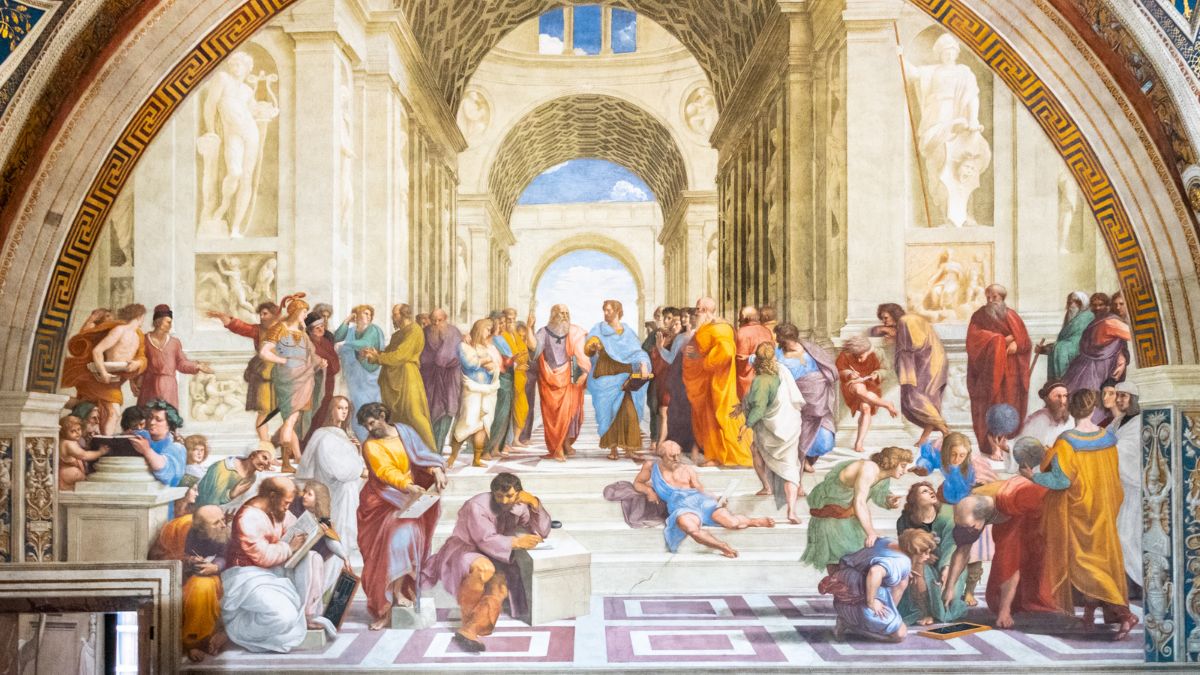Kalidasa (Classical Sanskrit Literature)
Kalidasa (Classical Sanskrit Literature)
Plato (Classical Philosophy)

Plato (Classical Philosophy)
In the annals of human thought, few figures loom as large and enigmatic as the ancient Greek philosopher Plato. His works, a fusion of poetic brilliance and profound philosophical insight, continue to captivate and inspire, millennia after they were penned. To delve into Plato’s world is to embark on a journey not just through the corridors of classical philosophy, but into the very essence of human inquiry and the eternal quest for understanding.
Imagine walking the sun-drenched streets of ancient Athens, the birthplace of democracy and a hub of intellectual ferment. Here, amidst the majestic architecture and the animated discussions of citizens, emerged Plato, a figure whose thoughts would transcend time and space. Born into an aristocratic family in the early years of the 4th century BCE, Plato was destined for a life of political engagement. However, the execution of Socrates, his beloved mentor, in 399 BCE, steered his path towards a different horizon: philosophy.
Plato’s philosophy is a tapestry woven with threads of metaphysics, epistemology, ethics, and politics. At the heart of this tapestry lies his Theory of Forms, a breathtaking vision that posits the existence of an abstract world of perfect, immutable forms or ideas, of which the material world is but a shadow. This realm of forms, accessible only through the intellect, hosts the perfect blueprints of everything we perceive through our senses. To comprehend Plato’s Forms is to touch the ethereal beauty of perfection itself – a world where truth, beauty, and goodness converge in their purest forms.
The allegory of the Cave, found in his seminal work “The Republic,” is perhaps Plato’s most vivid and enduring metaphor. Here, he invites us to envision humanity as prisoners in a cave, mistaking shadows on the wall for reality. Plato’s narrative is not just a story; it’s a profound invitation to awaken from the slumber of ignorance and turn towards the philosophical light, where true understanding awaits. This allegory continues to resonate today, challenging us to question our perceptions and seek deeper truths.
Plato’s Academy, founded around 387 BCE, stands as another testament to his enduring legacy. More than just a school, it was an intellectual epicenter where thinkers from across the Greek world converged to discuss ideas about the universe, politics, and the human condition. The Academy became the crucible for ideas that would shape Western thought for centuries to come.
Yet, for all his philosophical prowess, Plato remained a master storyteller. His dialogues, with Socrates often at their center, are not dry treatises but lively, engaging discussions, brimming with wit, drama, and profound insights. Through these dialogues, Plato doesn’t just convey philosophical concepts; he invites us into a conversation that spans ages, urging us to participate in this grand exploration of ideas.
In conclusion, Plato’s contributions to philosophy and the broader tapestry of human thought are nothing short of astronomical. His vision transcends mere academic inquiry, reaching into the realms of the mystical and the sublime. Plato does not just challenge us to think; he invites us to wonder, to imagine, and to aspire towards a realm of higher understanding. In his works, we find not just the foundations of Western philosophy but a timeless guide to the art of thinking deeply about the world and our place within it. Plato, the philosopher-king of thought, continues to reign supreme in the kingdom of human intellect, his legacy as radiant as the eternal forms he so eloquently described.